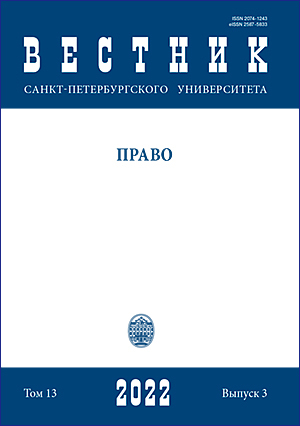Implication and development of the legal system of the pilot free trade zones with Chinese characteristics
DOI:
https://doi.org/10.21638/spbu14.2022.304Abstract
Ever since its birth, the legal system of the Pilot Free Trade Zones with Chinese characteristics has face a relatively severe external environment and realistic internal motivation. Through the exploration of institutionalizing authorized legislation, the legal system of the Pilot Free Trade Zones has formed a multi-level normative system. Five areas represented by investment system reform, trade facilitation, financial reform, administration, and dispute settlement mechanisms constitute the core contents of the legal innovation of Pilot Free Trade Zones with Chinese characteristics. The legal system of the zones is a top-level design of China’s response to the complicated international background, the inevitable requirement to promote institution-based opening-up, the centralized embodiment of high standard economic and trade rules, the inevitable way to improve social and global governance, and the experimental field to promote the practice and innovation of the rule of law reform. With the upgrade and expansion of Pilot Free Trade Zones, the establishment of Hainan Free Trade Port, the zones face corresponding challenges of capacity upgrade, replication and promotion, and pilot acceleration, which need to further expand the function of integrated innovation, in line with the international economic and trade standards, to promote deepening reform and achieve high quality development. The rule of law construction in China’s pilot free trade zones should adhere to the combination of the positioning of the rule of law and problem orientation, further clarify the positioning of the rule of law in the pilot free trade zones under the conditions of high-level opening up, and strengthen the state’s top-level design for the legislation of the pilot zones across the country. Focus on the implementation and promotion of the rule of law construction in China’s pilot free trade zones.
Keywords:
free trade zones, legal system, reform and innovation, Chinese characteristics, trade facilitation, investment rule, financial reform
Downloads
References
Downloads
Published
How to Cite
Issue
Section
License
Articles of "Vestnik of Saint Petersburg University. Law" are open access distributed under the terms of the License Agreement with Saint Petersburg State University, which permits to the authors unrestricted distribution and self-archiving free of charge.






